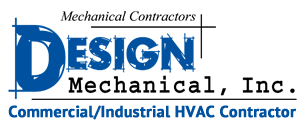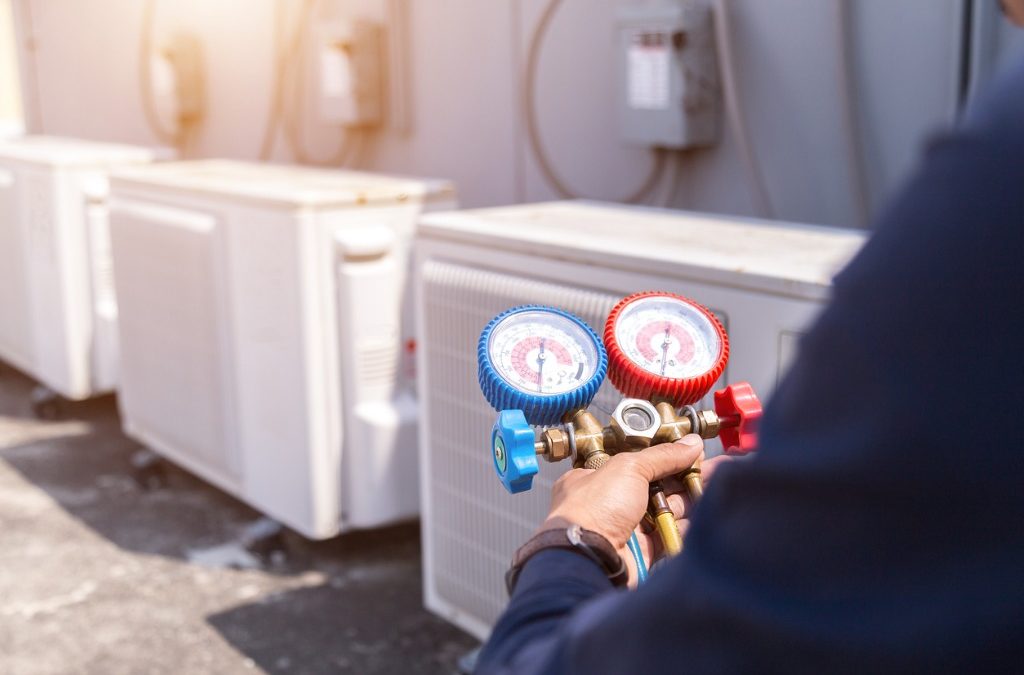When deciding whether to invest in a new HVAC system, there are countless numbers, ratings, and terms that you are likely to encounter. Over time, this can become overwhelming, especially if you have no idea what they represent. However, there is one number in particular that you should pay specific attention to.
If you’ve ever looked at the specifications of an air conditioner or heater, you’ve probably come across the term British thermal unit (BTU).
Understanding BTUs and what they mean for your commercial HVAC system will give you a better understanding of what is needed to heat and cool your facility and how your HVAC equipment works. Failing to consider your HVAC system’s BTU rating could severely limit your comfort if it lacks the energy to heat or cool your business.
In this article, we’ll discuss BTUs and why they are crucial in determining which commercial HVAC system is best suited for your business. Continue reading below to learn everything you need to know about BTUs and how Design Mechanical can help you with all of your commercial HVAC repair and maintenance needs.
What Is a BTU?
Understanding what BTU means and its importance is highly beneficial for business owners or building managers who want to get the most out of their heating and cooling systems. But what exactly are BTUs, what do they mean, and why are they so crucial regarding your commercial HVAC system?
BTU is an abbreviation for British Thermal Unit that has been in use since the late 1800s and is a commonly used industry term for rating and sizing heating and cooling appliances. Similarly to counting calories to track how much energy you put into your body, BTUs track how much energy your HVAC system can process to heat or cool your commercial building.
BTUs refer to the amount of energy required to increase the temperature of one pound of water by one degree Fahrenheit.
When you use an HVAC system with fewer than the required BTUs, you will not be able to achieve the desired level of comfort, as your air conditioning system will become overwhelmed by the excessive energy load. As a result, your system will run indefinitely and never reach the desired temperature, decreasing the lifespan of your unit.
Understanding BTUs and Your Commercial HVAC System
As previously mentioned, the BTU rating of a commercial HVAC system indicates how powerful your system is and the energy required to produce a specific amount of hot or cool air.
Air conditioners, rather than adding cool air, work by removing heat from a room. This is made possible by the compressor system, which absorbs heat and transports it away from the particular space, where it is released outdoors. In this instance, BTUs measure how much energy is required to remove the heat using the compressor system. Because this requires energy, the BTU is a measure of energy rather than direct heating.
An HVAC system with a higher BTU rating is more powerful than one with a lower BTU rating and can raise the temperature in your commercial space faster each hour. This allows you to either heat or cool a specific area or a larger room much quicker than an HVAC system with a low BTU rating.
Higher BTUs on a commercial HVAC system indicate that it has a larger capacity to do its job. When comparing output for similarly priced air conditioning units, the BTU rating can help determine which HVAC system will give you the highest return on investment.
How Many BTUs Does Your Commercial HVAC System Need?
When choosing the best HVAC system for your commercial business, understanding the system’s BTU rating is critical. Your company has unique heating and cooling requirements, all of which are related to the size, shape, location, and specifics of your commercial building. As a result, you will need to select an HVAC system that meets these unique requirements.
For example, if you choose an HVAC system with an insufficient BTU rating, the system will likely cycle on and off more frequently to maintain your building’s temperature. This not only means that it will run continuously, driving up your electricity bills, but it could also result in your HVAC unit wearing out and breaking down much sooner than you anticipated.
When selecting a commercial HVAC system for your organization, consider the following factors to determine which system is most suitable for your company’s needs.
Ceiling Height
When sizing your HVAC unit, consider the total volume of air you need to cool, not just the room’s floor area. When BTU rating recommendations are given based on square footage, standard 8-foot ceilings are assumed. However, if you have high ceilings, the volume of air will be significantly increased, requiring a higher BTU rating.
Climate
Your location is another crucial factor when selecting a commercial HVAC system. If your business is in a warmer climate, the temperature difference between the ambient air and your desired temperature will be greater, requiring your air conditioner to work harder. HVAC systems in warmer areas may require twice as many BTUs as in HVAC systems in cooler climates.
Insulation
Insulation is crucial to the cooling process. If you live in a well-insulated commercial building, you may be able to get away with lower BTUs than if you live in a commercial building with average insulation. In contrast, an uninsulated building will require a more powerful air conditioner to keep up with the loss of cool air through the walls.
Building Size
Generally, the larger the commercial building, the more BTUs it will require to keep cool. A business with the same square footage but arranged in a multi-story floor plan has a smaller footprint and will not lose cool air as quickly. The less energy it takes to cool your commercial building, the more compact the unit’s layout.
Choose Design Mechanical for the Best Commercial HVAC Repair and Maintenance
BTUs are essential in determining which HVAC system will best suit your company’s needs. Ultimately, your number one priority should be to find an energy-efficient system that adequately cools your commercial space while also saving you money on energy costs.
At Design Mechanical, we understand how important it is to make your business as comfortable and welcoming to your valued customers and dedicated employees as possible.
Businesses in Kansas City and the surrounding areas have relied on our high-quality commercial HVAC services for over 20 years. With a team of over 100 specialists on call 24 hours a day, you can be confident that we will keep your company’s HVAC system running smoothly for many years.
If your commercial HVAC system isn’t working correctly and you believe it’s time for a professional inspection, contact Design Mechanical today to schedule a free consultation and find out how our specialists can handle all of your repair and maintenance needs.

